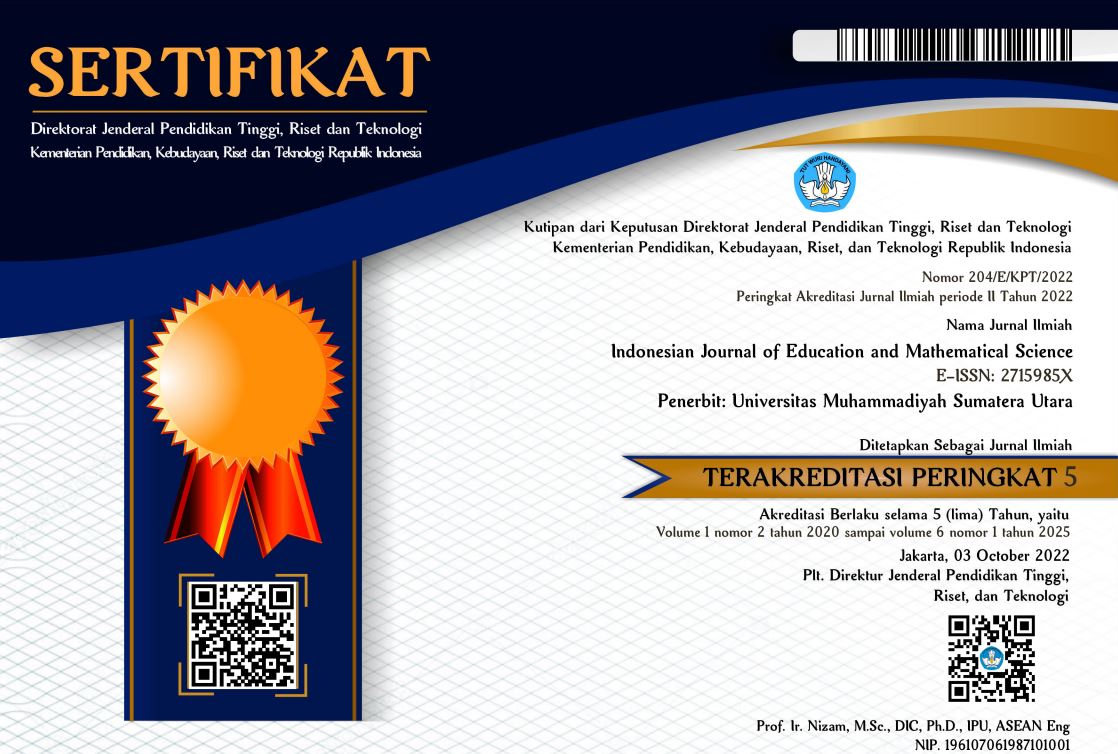Formation Of Qualified Bachelor Through Soft Skills In Extracurricular Activities Of University Of Muhammadiyah Sumatera Utara Students
Abstract
Referring to Government Regulation No. 30 of 1990 concerning Higher Education as an elaboration of Law No. 2 of 1989 concerning the National Education System which states that the aim of national education is to form a whole person. But in its implementation, the implementation of tertiary institutions places too much emphasis on the cognitive or academic aspects of higher education institutions. To improve the ability of instructors from the Universitas Muhammadiyah Sumatera Utara (UMSU) to conduct Training of Trainers with experts from the Higher Education. The implementation often clashes with the lecture schedule. The schedule for implementing soft skills training often clashes with the schedule of college students. But these problems can be overcome by collaborating and asking for permission from the faculty so that the student can take part in soft skills training. Involving as many lecturers as possible with Masters (S2) and Doctors (S3) degrees by providing debriefing. UMSU is the largest private university in North Sumatra, thus the indicators of soft skills success should be used as benchmarks for other private universities that have not had the opportunity to develop soft skills.
Keywords: Bachelor, Soft skills, Extracurricular
Keywords
Full Text:
PDFReferences
Agussani, A. (2018). A Qualitative Study on the Role of Family and Social Circles among Women Entrepreneurs in Indonesia. Kumpulan Penelitian dan Pengabdian Dosen, 1(1).
Agussani, A. (2020). Integrasi Model Penanganan Trafiking. Kumpulan Penelitian dan Pengabdian Dosen.
Akrim, A. (2018). MENJADI GENERASI PEMIMPIN Apa yang Dilakukan Sekolah?. Kumpulan Buku Dosen, 1(1).
AKRIM, M., & HARFIANI, R. Daily learning flow of inclusive education for Early Childhood.
Akrim, A. (2020). Application of Learning Model Strategies to improve Islamic Learning Outcomes. Budapest International Research and Critics Institute (BIRCI-Journal): Humanities and Social Sciences, 3(2), 1157-1166.
Akrim, M. (2018, July). Media Learning in Digital Era. In 2018 3rd International Conference on Education, Sports, Arts and Management Engineering (ICESAME 2018). Atlantis Press.
Hartanto, D. (2019). Kajian Wilayah Birokrasi Bersih dan Melayani Kepolisian Resort Kota Besar Medan. Publikauma: Jurnal Administrasi Publik Universitas Medan Area, 7(2).
Budhy Munawar-Rahman. (2010). Argumen Islam untuk Liberalisme: Islam Progresif dan Perkembangan Diskursusnya. Jakarta: Grasindo.
Gibb, H.A.R. (1990). Aliran-aliran Moderen dalam Islam. Terjemah oleh Machnun Husein. Jakarta: Rajawali Press.
Maarif, Syafii. 2009. Ilusi Negara Islam : Ekspansi Gerakan Transnasional di Indonesia. Jakarta: Wahid Press.
Imarah, Muhammad. (1999). Fundamentalisme dalam Perspektif Pemikiran Barat dan Islam. Terjemah oleh Abdul Hayyie al-Kattani. Jakarta: Gema Insani Press.
M. Zaki Mubarak (2008). Genealogi Islam Radikal di Indonesia: Gerakan, Pemikiran dan Prospek Demokrasi. Yogyakarta: Pustaka LP3ES.
Musa Asyarie. (1992). Manusia Pembentuk Kebudayaan dalam Al-Quran. Yogyakarta: LESFI. Nasution, Harun. (1995). Islam Rasional. Bandung: Mizan.
Nasution, M. D., & Prastika, C. (2020). Upaya Meningkatkan Hasil Belajar Siswa Melalui Model Pembelajaran Kooperatif Make-A Match (Mam) Pada Materi Limit Fungsi Di Kelas XI MAN 1 Medan. Jurnal Penelitian, Pendidikan dan Pengajaran: JPPP, 1(1).
Nur Syam. (2005). Bukan Dunia Berbeda: Sosiologi komunitas Islam. Surabaya: Eureka. Rahman, Fazlur. (1982). Islam and Modernity. Chicago: The University of Chicago Press.
Huntington, Samuel P. 2004. Who Are We? : The Challenges to Americas National Identity. Colorado: US Press
Riddel, Peter G. (2002). The Diverse Voices of Political Islam in Post-Suharto Indonesia, Islam and Christian-Muslim Relations. Vol. 13, No. 1.
Shaban. (1994). Islamic History. Cambridge: Cambridge University Press.
Thomas, M Scoot. 2005. The Global Resurgence of Religion and The Transformation of International Relation, The Struggle for the Soul of the Twenty-First Century. Sydney: Great Wall Watt, William Montgomery. (1988). Islamic Fundamentalism and Modernity. London: T.J. Press (Padstow) Ltd.
Gelner, Ernest. 1981. Muslim Society. Cambridge: Universal Press
Zuly Qodir. (2011). Sosiologi Agama: Esai-esai Agama di Ruang Publik. Yogyakarta: Pustaka Pelajar.
HR Bukhari nomor 7123, Juz 6 halaman 20748; Sunan an-Nasai bab Man Syahara Saifahu 12/ 474 nomor 4034; Musnad Ahmad bab Hadits Abi Barzakh al-Aslami 40/ 266 nomor 18947
Diakses juga di www.liputan6.com pada 27 Desember 2019
Diakses di http://icrp-online.org/112011/post-804.html pada 17 Desember 2019.
Gunawan, G. (2020). The Influence of Transformational Leadership, School Culture and Work Motivation on School Effectiveness in Junior High School in Medan. Budapest International Research and Critics Institute (BIRCI-Journal): Humanities and Social Sciences, 3(1), 625-634.
Sulasmi, E. (2019). Evaluation of the Operational Assistance Management (Bop) Management Funding Program at the Bengkulu City Paud Institution. IJEMS: Indonesian Journal of Education and Mathematical Science, 1(1).
DOI: https://doi.org/10.30596/ijems.v1i2.4611
Refbacks
- There are currently no refbacks.
Indonesian Journal of Education and Mathematics Science
Universitas Muhammadiyah Sumatera Utara
Kampus Utama
Jl. Kapten Muchtar Basri No.3, Glugur Darat II,Medan
Sumatera Utara-20238
E-mail: ijems@umsu.ac.id
This work is licensed under a Creative Commons Attribution-ShareAlike 4.0 International License.






